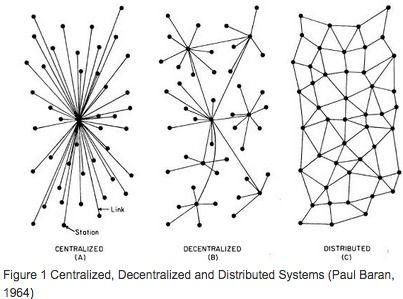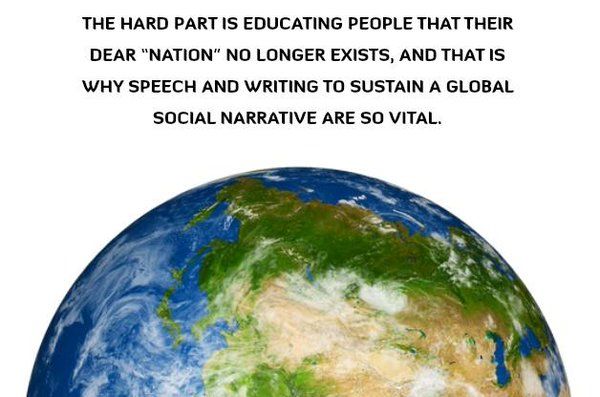The creeping social inequality in Britain has become a source of growing concern to many. When strikes and despair over the income disparity within a single country or locale feature often in our politics, do we unjustly forget the scale of global wealth inequality?
I am not writing this article to belie the social calamity of income inequality in Britain, nor to argue for more urgency in remedial foreign policies such as development assistance. This is purely an analysis of the long-term crisis represented by global disparities of wealth, and the historical choices it will force on many actors in the world-system, from states to activists.
In a talk I heard in my studies at Lancaster University in 2012, former Home Secretary Charles Clarke gave his predictions on the greatest threats to global security in the short-term and long-term future. One of his predictions struck me as the most important: the ease with which modern media allows different strata of the world to see one another’s vastly different lifestyles, thus threatening to turn global inequality into an ever greater spectacle. This spectacle has the potential to inspire global rage, perhaps justifiable in the same sense as encountered in the years preceding the French Revolution. Indeed, the present world order resembles France’s Ancien Régime in many ways.
Interestingly, the term “Third World”, used to denote less “developed” states, comes from the term “Third Estate”, which referred to “commoners” in France’s Ancien Régime – the subjects who rose up and turned their kingdom into a republic. Famously,
Alfred Sauvy coined the term when he presented an analogy between exploited colonial states under the European powers and exploited subjects living under absolute monarchy, in an article for
L’Observateur in 1952.
Since Sauvy coined the term, decolonization has achieved its popular ends, but an exploitative structure remains in place. At least that is the view of dependency theorists, world-systems theorists and other structuralist critics of the international system. The most eminent of these analysts is
Immanuel Wallerstein, possibly the greatest sociologist alive.
In Wallerstein’s analysis, the modern thesis of “development” supported by the United Nations and other intergovernmental institutions is as much to blame for world inequality as Europe’s colonial “civilizing” thesis that came before it. In his widely taught
theory of the world-system, the world can be socially and geographically broken down into three strata based on the kind of production processes occurring in different states and geographic regions.
Immanuel Wallerstein sees world inequality not as something proceeding from countries lagging behind others as a result of historic oppression and debt, but as something proceeding from the existence of “countries” altogether. In his assessment, the division of the world into distinct nation-states is founded on arbitrary distinctions among the human race, and this gives rise to world inequality. Taking up such logic, it is hard for one to deny that the dissolution of the nation-state model itself would be a core part of any long-term political designs for remedying world inequality.
If the abandonment of the nation-state model seems too radical for you at this stage, it is not too radical for Wallerstein. In
Utopistics (1998) he predicts that a crisis that could occur as early as the coming half-century will create real opportunities to seriously challenge the nation-state model. He does not say what alternative system this crisis entails, but argues that there will be a unique opportunity to construct something far more egalitarian than anything previously known. If a more equitable order is indeed gained, this would involve borders ceasing to be necessary or recognized, and authoritarian state norms becoming unsustainable.
We can already see antagonisms that are directly tied to the transnational wealth inequalities on which this article is focused. Often misleadingly framed as issues between two states, they are actually issues between opposing strata of the world-system itself. Such issues include crises on the land, like migration to the United States through its brutally enforced border with Mexico, and the inhumane occupation of Palestinian land by the Israeli State. They include crises on the water, such as migration from North Africa to Spain and Italy.
The crises tied to the enforcement of borders are part of the larger crisis gripping what Wallerstein calls the “interstate system”. This interstate system is the “political superstructure” of a global division of labor predicated on the historic industrial inequality persisting between entire continents and so-called nations. Strong states possess advanced factories and skills, while weak states are left to mine arduously. Wallerstein describes this exploitative situation in terms of a “core-periphery” relationship, in which the industrialized powers represent the “core”.
Another side to this crisis of the state is the alarming spread of internecine conflict and the growing perception of law enforcers as illegitimate, arbitrary and cruel (the
2014 Ferguson Riots are a compelling example of this and demonstrate that the US is not exempt). Such trends point inexorably towards the view that the nation-state may eventually be fated to be abandoned – not just in a particular country, but everywhere.
In my view, Wallerstein’s analysis is compelling. However, it lacks emphasis on the dawn of digital life, which has added a whole new dimension to the crisis of the world-system by literally turning the world into a community of individuals interacting on an unprecedented supranational level. This is historically important and bound to change global politics for very profound and complex reasons.
Another key historian of the world-system,
Benedict Anderson, says something insightful about our modern nation-states in his book,
Imagined Communities (1982). His analysis differs from Wallerstein’s, mainly due to his greater emphasis on technology and language. He gives the example of Bismarck’s Germany as the first modern nation-state, which differs from Wallerstein’s preoccupation with revolutionary France. In
Imagined Communities, Anderson explains that the telegraph and rail systems allowed Germany to become a unified nation, by developing a sense of national consciousness.
If telegraph led to the formation of national consciousness through an illusory sense of community enough to give rise to a nation, surely it follows that the internet – with its profound revolution in our lives – will give rise to something equally significant. The champion of today’s rebel “cypherpunk” elite, Julian Assange, has said something very approximate to this in his own rhetoric, arguing that a
“new body politic” is rising to challenge government authority through the internet. He also describes digital life as borderless and free, in such a way that can only become more and more real as digital technology continues its exponential growth. It is no accident that this sounds like the egalitarian post-state future leaned towards by Wallerstein as humanity’s noblest alternative.
Modern political legitimacy is founded on the doctrine of popular sovereignty, as Immanuel Wallerstein repeatedly points out in his works. One may be the citizen of a “nation” by having certain arbitrary qualities or place of birth, and as such may be treated equally and defended by a given state. This is what we call being part of a nation, whether it is the United States or a highly contested “state” like Palestine or Abkhazia. However, the basis of such an institution is very much in question, and in the future it will become increasingly weakened by the growing transnational consciousness brought about by weakening borders and
exponential digital communication.
Where does this lead us? Shall we reject popular sovereignty as obsolete? Impossible. It is the sacrosanct foundation of all modern democracy and civil rights, and the only reliable metric of social progress. Self-determination of nations has been part of the doctrine of popular sovereignty, as is the idea that regimes must be legitimately elected to power by their constituent nations. However, if the nation is to become obsolete, as predicted in Wallerstein’s analysis of the crisis of the world-system, self-determination still stands because human rights are sacrosanct. The self-recognition of transnational humanity as sovereign must follow, and global lines of transport and communication make that feasible. The hard part is educating people that their dear “nation” no longer exists, and that is why speech and writing to sustain a global social narrative are so vital.
Perhaps the end result of the self-determination of humanity is not necessarily “global citizenship” as predicted by some (redundant, since citizenship is designed to exclude others and serves no purpose if it lacks this proscriptive power). Nor is it necessarily “world government”. However, we can know that human rights like self-determination will outlive the existence of the nation-state, and the alternative regime will then be designed and elected by the whole of transnational humanity rather than a particular group.
A new form of network-centric governance, authoritative but not authoritarian, based on scientific methods of evaluation, and tolerating no disparities in wealth or information, is a model that could supersede all the nations and make world inequality obsolete. Such a revised politics would be intellectually consistent with and assist to usher in a Global Resource-Based Economy.
By Harry J. Bentham – More articles by Harry J. Bentham





